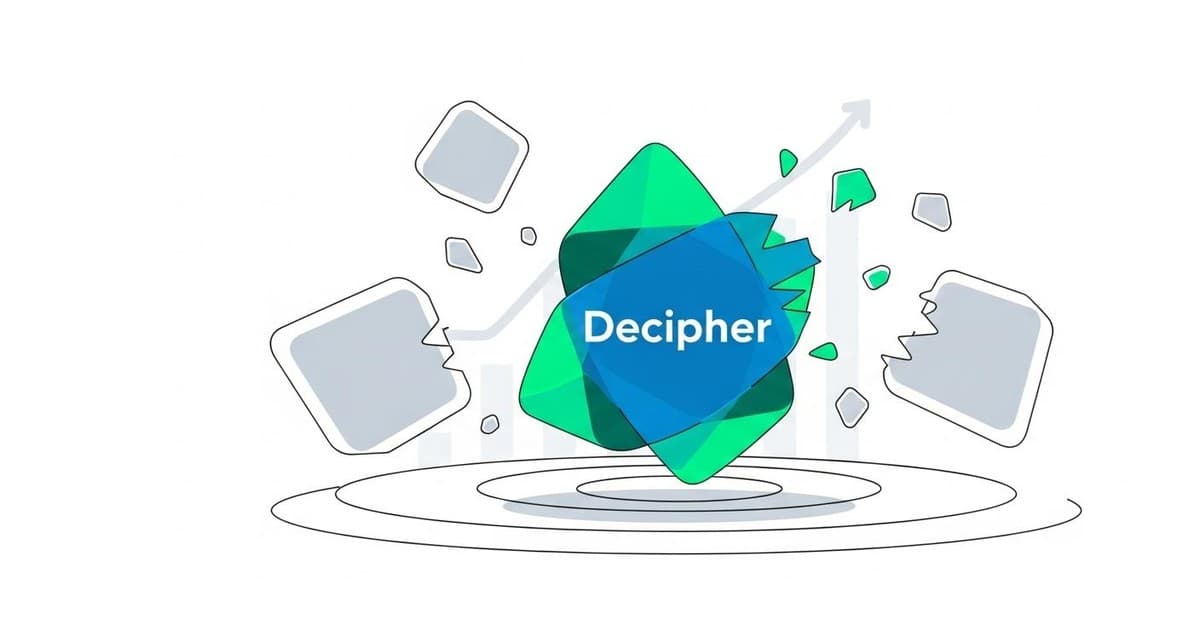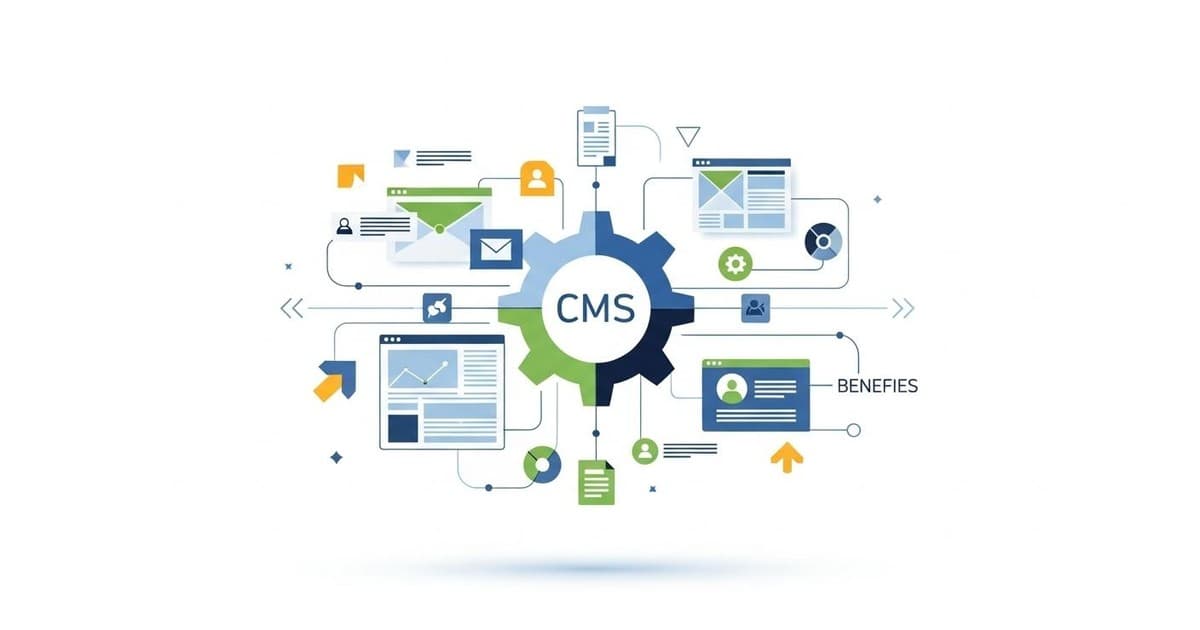
5 Essential AI CMS Features for Startups and Enterprise Clients
The 5 essential AI CMS features for startups and enterprise clients are: AI-powered content creation, intelligent SEO optimization, hyper-personalization, automated media management, and predictive analytics. These features address the critical need for scaling content operations while maintaining quality and efficiency across different business sizes.
In today's digital landscape, content has become the battlefield where businesses win or lose customers. Startups face the challenge of creating maximum impact with minimal resources, while enterprises struggle with maintaining consistency and proving ROI across vast, complex operations. The stakes couldn't be higher - companies that fail to efficiently manage their content operations risk falling behind competitors who leverage intelligent automation.
The solution lies in AI-powered Content Management Systems that transform how organizations create, manage, and optimize their content. Unlike traditional CMS platforms that require extensive manual effort, AI-powered content management systems automate complex workflows while delivering personalized experiences at scale. This technological shift isn't just an upgrade - it's a fundamental reimagining of how content operations should function in 2025 and beyond.
What to Look for in an AI CMS?

Before diving into specific features, it's crucial to understand what separates truly intelligent AI CMS platforms from those with basic automation. The best AI CMS solutions go beyond simple content templates and basic analytics to provide genuine intelligence that learns and adapts to your business needs.
1. Contextual Intelligence: The system should understand your brand voice, industry context, and audience preferences to generate relevant, on-brand content rather than generic copy that requires extensive editing.
2. Scalable Architecture: Whether you're a 5-person startup or a 5,000-employee enterprise, the platform should handle your current needs while seamlessly scaling as you grow without performance degradation.
3. Integration Capabilities: Your AI CMS should connect effortlessly with your existing marketing stack, from CRM systems to email platforms, creating a unified workflow rather than another isolated tool.
4. Measurable ROI: Look for platforms that provide clear metrics on efficiency gains, content performance improvements, and time savings - not just vanity metrics that sound impressive but don't impact your bottom line.
5. Security and Compliance: Especially for enterprises, the system must meet industry standards for data protection, user access controls, and regulatory compliance without compromising functionality.
The 5 Essential AI CMS Features That Transform Content Operations

These five features represent the core capabilities that separate basic content management from intelligent content operations. Each addresses specific pain points that both startups and enterprises face, though the benefits manifest differently based on organizational size and complexity.
The selection criteria focus on features that provide immediate value while building long-term competitive advantages. Rather than flashy capabilities that impress in demos but fail in daily use, these features solve real problems that content teams face every day.
1. AI-Powered Content Creation and Ideation
This feature leverages generative AI to brainstorm topics, create article outlines, write first drafts, generate social media copy, and suggest compelling headlines. The system learns from your existing content to maintain brand voice consistency while dramatically accelerating the content creation process.
Why It's Essential for Startups: Speed and efficiency become your competitive advantage. Small teams can overcome writer's block and produce large volumes of content quickly, enabling rapid testing of different messaging angles. This feature allows a two-person marketing team to output content at the level of a much larger organization, crucial for startups competing against established players.
Why It's Essential for Enterprise: Scale and consistency across distributed teams become manageable. Large marketing departments can ensure on-brand content creation across regions and departments while efficiently repurposing long-form content into multiple formats. The AI maintains brand voice consistency that would be impossible to achieve manually across hundreds of content creators.
2. Intelligent SEO and Content Optimization
Advanced AI analyzes top-ranking content in your industry, suggests relevant keywords and semantic terms, provides real-time readability scores, and recommends internal linking strategies. The system continuously monitors search engine algorithm changes and adjusts recommendations accordingly.
Why It's Essential for Startups: This levels the playing field by providing enterprise-grade SEO insights without requiring a dedicated SEO team. Startups can identify and rank for niche topics that larger competitors might overlook, finding profitable keyword opportunities that match their resources and expertise.
Why It's Essential for Enterprise: Maintaining search dominance at scale requires systematic optimization across thousands of pages. The AI ensures all content creators follow SEO best practices while identifying content gaps in complex competitive landscapes. This systematic approach protects and expands organic search visibility across vast content libraries.
3. Hyper-Personalization and Dynamic Content Delivery
The AI engine analyzes user behavior, demographic data, and interaction history in real-time to deliver tailored content, product recommendations, and calls-to-action to individual visitors. This goes beyond basic segmentation to create truly individualized experiences.
Why It's Essential for Startups: Every website visitor becomes more valuable through personalized experiences that increase engagement and conversion rates. With limited traffic volume, startups must maximize the value of each visitor, and personalization can dramatically improve early-stage user engagement and conversion metrics.
Why It's Essential for Enterprise: Complex sales funnels and diverse customer segments require sophisticated personalization to nurture leads effectively. The AI increases cross-sell and upsell opportunities while delivering cohesive, personalized brand experiences across all digital touchpoints, directly impacting customer lifetime value.
4. Automated Media Management and Tagging
AI automatically scans images and videos to generate descriptive tags, captions, and alt-text for accessibility compliance. The system enables intelligent search within media libraries based on visual content rather than just filenames, making asset discovery effortless.
Why It's Essential for Startups: Workflow automation saves countless hours on manual administrative tasks that don't directly generate revenue. Small teams can maintain organized, searchable media libraries while ensuring accessibility compliance from day one, avoiding costly retrofitting later.
Why It's Essential for Enterprise: Managing Digital Asset Management systems with millions of assets becomes feasible through intelligent automation. The AI ensures brand compliance in imagery while empowering global teams to quickly find and use approved assets, reducing brand inconsistency and legal risks.
5. Predictive Analytics and Content Performance Insights
This advanced feature predicts which content topics will trend, identifies optimal content formats for specific audiences, and provides actionable insights explaining why certain content succeeds or fails. The AI learns from performance patterns to improve future recommendations.
Why It's Essential for Startups: Data-driven decision making becomes accessible without expensive analytics teams. Startups can avoid wasted effort on content that won't perform while pivoting strategy quickly based on predictive insights, crucial for resource-constrained organizations.
Why It's Essential for Enterprise: Large content marketing budgets require justification through measurable ROI. The AI optimizes content strategy for maximum impact while identifying market trends early, helping enterprises maintain thought leadership positions and stay ahead of competitors.
Making the Strategic Decision for Your Organization

Many organizations make the mistake of choosing an AI CMS based on impressive demo features rather than evaluating how well the platform addresses their specific operational challenges. The most common error is focusing on individual features rather than considering how they work together to transform your entire content workflow.
For Startups: Prioritize ease of use, scalable pricing models that grow with your business, and strong integrations with your existing marketing stack. Look for platforms that can deliver immediate productivity gains without requiring extensive training or setup time.
For Enterprises: Focus on robust security and compliance capabilities, enterprise-grade scalability and performance, extensive API options for custom integrations, and dedicated support with clear service-level agreements. Consider how the platform will handle your most complex use cases, not just basic functionality.
For Both: Evaluate the platform's ability to demonstrate measurable ROI within 90 days. The best AI CMS solutions, like Decipher CMS, can increase marketing team efficiency by 50-70% while providing clear metrics on time savings and performance improvements.
The future of content management isn't just about storing and publishing content - it's about creating intelligent systems that actively contribute to your business growth. Companies that embrace AI-powered content management today will have significant competitive advantages as these technologies become standard expectations rather than differentiators. Understanding why AI CMS is necessary in 2025 helps organizations prepare for this inevitable shift in content operations.


